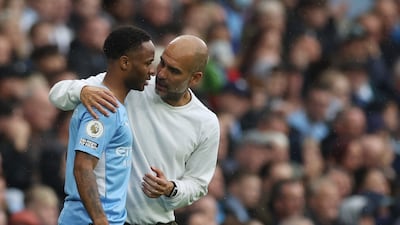Seven years is almost an eternity for a modern elite coach. Most do not get to choose anywhere near as long a stay in a single job. Even the good ones. In between Pep Guardiola beginning his golden spell at Manchester City, in 2016, and his embarking on this, his fifth season at the Etihad Stadium, Chelsea — for instance — have been managed by four different men.
If, as Guardiola has revealed, 2023 seems to him the logical date at which to step away from City, he will have been there seven years and more than 400 matches. He will look back on a transformational epoch for the club and for the English football culture he arrived at with wide-eyed fascination, great respect and bold ambitions.
He will also know City changed him for the better. For a start, they soothed his natural restlessness. Guardiola spent four seasons as Barcelona’s manager, his first senior job in management, and three at Bayern Munich when he sensed strongly it was time to draw a line. Both clubs would have liked him in charge for longer.
But he had had enough. City has been a different sort of marriage, with longer-term targets and deep involvement in the broader uplift of an institution, nourished by the relentless striving of a man who never settles in a comfortable groove but searches, week to week, practice session to practice session, for better. That makes for a stimulating environment for every student and eventually it exhausts Pep the great teacher.
For those who have travelled the full City road with Guardiola so far, the blessings have been huge. Rewind back to his first match as a manager in England, and you’ll see a City line up that included John Stones, then 22, and Raheem Sterling, 21.
Five years on, they are fresh from guiding England to the national team’s first major final since 1966, Stones starring in an impeccable defence at Euro 2020, where Sterling was England’s most influential forward.
That pair should, by mid-2023, still be part of the City machinery, two footballers whose progress under a full, honours course of what Spaniards call ‘guardiolismo’ has been stellar.
Sterling used to be the dainty dribbler who had difficulties as a finisher; under Guardiola, he became a 30-plus-goals-in-a-season striker. Stones has had his ups and downs; he was shepherded through them by the City manager. Neither has been allowed to feel complacent.
Guardiola's possible replacements
Fernandinho, of the players still at City, was also in the debut XI — a 1-0 win against Sunderland — of Guardiola’s extended adventure in the Premier League, and though it might be a stretch to imagine he will retain the same importance come May 2023, when the Brazilian will be 38. However, he could scarcely have thought, back in August 2016, that his elite career would be so prolonged, or his skill-set so expanded under Guardiola.
To be at City under Guardiola is to have your status elevated. In the last three years, Sterling and Ruben Dias have both won the English Football Writers’ Player of the Year award; Kevin De Bruyne has twice been elected Footballer of the Year by his fellow professionals. Stones, Sterling and many others won their first league titles under their inspiring, innovative Catalan boss. They then added two more. City have won five domestic Cups in the last five seasons.
Fast forward to June 2023. There will, doubtless, have been more silverware. Sterling, Stones, Ederson, Jack Grealish, Rodri will still be under 30, and the likes of Gabriel Jesus, Phil Foden and Ferran Torres still at an age where they are entitled to think they are climbing towards their peak-performance years. The Guardiola legacy, in terms of individual talent, will look formidable.
But ask each of those players what they most yearn for, in terms of a trophy, and they would echo their manager. They want that missing Champions League. By setting 2023 as the date when, as Guardiola put it “I can look at what we’ve done”, the great catalyst of City as a football superpower has set himself a tight deadline for bringing a first European Cup to the blue side of Manchester.
One mere appearance in a Champions League final, and a runners-up medal, is the part of the City legacy Guardiola most strives to correct. He has given himself time to make good on that European deficit, but if 2023 is the farewell date, not much margin for error.







